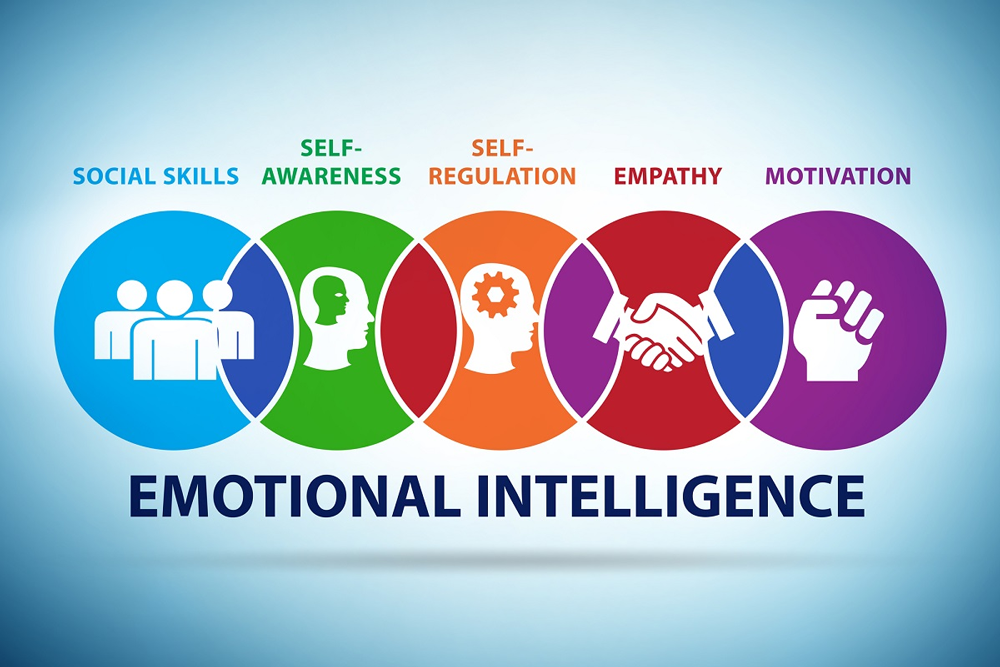Parenting with Emotional Intelligence: Nurturing Healthy Relationships and Resilience in Children

Emotional Intelligence (EI) has emerged as a cornerstone in effective parenting, offering a framework for nurturing healthy relationships and resilience in children. At its core, EI equips parents with the ability to understand, use, and manage emotions in positive ways to communicate effectively, empathize with others, overcome challenges, and defuse conflict. This article delves into the significance of incorporating emotional intelligence into parenting practices, aiming to foster environments where children thrive emotionally, socially, and academically.
Understanding Emotional Intelligence
Emotional Intelligence is the capacity to be aware of, control, and express one’s emotions, and to handle interpersonal relationships judiciously and empathetically. It encompasses several key skills: self-awareness, self-regulation, motivation, empathy, and social skills. For parents, these skills are invaluable. They not only enhance personal well-being and relationships but also significantly impact their role as caregivers. By mastering EI components, parents can model positive behaviors, understand their children’s emotional needs, and respond to them in supportive ways. This foundation of emotional awareness and communication is crucial for fostering strong, healthy family dynamics.

The Impact of Emotional Intelligence on Children
Emotional intelligence plays a pivotal role in a child’s development, influencing their social, emotional, and cognitive growth. Children raised in emotionally intelligent households tend to have better emotional regulation, show greater empathy, and possess stronger social skills. They are better equipped to form healthy relationships, both within the family and with peers. Furthermore, these children often exhibit higher self-esteem and confidence, as they feel understood and valued for their emotional experiences. Emotionally intelligent parenting encourages a child’s resilience, enabling them to navigate life’s challenges with a positive outlook and adaptive coping strategies. This nurturing approach lays the foundation for well-rounded individuals who can manage their emotions constructively and thrive in various aspects of life.
Strategies for Enhancing Emotional Intelligence in Parenting
Enhancing emotional intelligence as a parent involves both introspection and active skill development. Here are practical strategies for parents looking to foster EI in their parenting approach:
⦁ Practice Self-awareness: Reflect on your emotions and reactions. Recognizing your emotional triggers and patterns allows you to respond more calmly and constructively to your child’s needs.
⦁ Develop Empathy: Make a conscious effort to understand your child’s perspective and feelings. Listen actively and validate their emotions, showing that you respect and appreciate their experiences.
⦁ Improve Communication: Use emotional moments as opportunities for connection and teaching. Express your feelings openly and model healthy ways of expressing emotions and resolving conflicts.
⦁ Teach Emotional Regulation: Help your child identify their emotions and appropriate ways to express them. Discuss feelings, reactions, and coping mechanisms in a supportive and non-judgmental manner.
⦁ Foster Resilience: Encourage your child to face challenges and learn from setbacks. Teach them to view obstacles as opportunities for growth and learning, enhancing their problem-solving skills and resilience.
⦁ Set an Example: Children learn by example. Displaying emotional intelligence in your actions, reactions, and interactions serves as a powerful model for your child.
By integrating these strategies into daily interactions, parents can significantly enhance their emotional intelligence, leading to more meaningful and supportive relationships with their children.
Building Healthy Relationships through Emotional Intelligence
Emotional intelligence is the foundation of healthy, strong relationships between parents and children. It fosters an environment of trust, understanding, and mutual respect. Here are key strategies to utilize EI for building healthier relationships:
⦁ Open Communication: Encourage open and honest dialogue. Let your children know they can express their feelings and thoughts without fear of judgment. This open line of communication strengthens bonds and aids in emotional development.
⦁ Active Listening: Show your children that you value their perspectives by listening actively. This means being fully present, acknowledging their feelings, and responding thoughtfully. Active listening validates their experiences and feelings, building a stronger emotional connection.
⦁ Empathy in Action: Demonstrating empathy involves more than understanding your child’s feelings; it’s about showing compassion and reacting accordingly. When children see empathy modelled, they learn to empathize with others, enriching their social interactions and relationships.
⦁ Conflict Resolution: Use conflicts as teaching moments to develop problem-solving skills. Teach children how to express their feelings constructively and find solutions collaboratively, reinforcing the importance of empathy and understanding in resolving disagreements.
By prioritizing these emotional intelligence strategies, parents can nurture deeper, more meaningful relationships with their children, characterized by mutual respect and understanding.
Real-Life Applications
Empathy and Communication
A family implemented regular “emotional check-ins” during dinner, allowing each member to express their feelings and challenges. This practice led to improved understanding and support among family members, with the children showing enhanced empathy towards peers and a more open relationship with their parents.
Resilience Through Example
After facing a significant setback at work, a parent used the experience to teach their child about resilience. By openly discussing their emotions, strategies for coping, and lessons learned, the parent not only navigated their own recovery but also empowered their child to handle future challenges with resilience and optimism.
Embracing emotional intelligence in parenting is not just about fostering healthy relationships and resilience in children; it’s about setting the foundation for a future generation that values empathy, communication, and emotional well-being. As we’ve seen through practical strategies and real-life examples, the benefits of emotionally intelligent parenting extend far beyond the family unit, influencing how children interact with the world around them. By committing to enhance our emotional intelligence, we pave the way for nurturing more compassionate, resilient, and emotionally aware individuals.
Related News
Sanitary pads for schoolgirls : announcement from Education Ministry
The 2025 programme to distribute sanitary pads to schoolgirls in Sri Lanka will be implemented exclusively through four commercial entities, the Education…
Read MoreApplication for Grade 1 Admission in Govt Schools 2026
Today, the Ministry of Education announced the release of instructions regarding the admission process for Grade One students in State schools for…
Read MorePunjab University Offers Admissions in M.sc, M. Tech and P.h.D Programs
Nanoscience and Nanotechnology at Punjab University, Chandigarh, India. Panjab University (PU), established in 1882, is one of India’s oldest and most prestigious…
Read MoreStudy International University Foundation in Business at ACBT
The International University Foundation in Business Management at ACBT aims to give students a solid academic foundation in business principles and methods…
Read MoreAI in the Classroom: Is ChatGPT Helping or Hurting Student Thinking?
In lecture halls, libraries, and late night study sessions, one tool has become nearly as common as notebooks and laptops: ChatGPT. From…
Read MoreCourses
-

IMC – Bachelor of Psychology
IMC Education Overview IMC Campus in partnership with Lincoln University College (LUC) Malaysia offers Bachelor of Psychology Degree right here in Sri… -

ANC – BA (Hons) International Business Management (Top-Up)
ANC Education Overview Designed in partnership with public and private business organizations, this program develops one’s ability to critically evaluate business models… -

IIT – BSc (Hons) Computer Science
IIT Campus Overview BSc (Hons) Computer Science provides a solid foundation and training regarding the fundamentals of the computer science field, along… -

APIIT – BSc (Hons) Cyber Security
APIIT Sri Lanka Overview Our BSc (Hons) Cyber Security award is designed to launch your future career in the protection of software… -

ICBS – BSC (Hons) Business Management with Marketing Management
ICBS Overview The BSc (Hons) Business Management with Marketing program, awarded by Queen Margaret University (QMU), is a highly regarded degree that… -

UTS – Diploma of Science
UTS College Sri Lanka Overview The Diploma of Science is designed to empower you to apply scientific thinking and analysis to important… -

CSA – Master of Architecture and Environmental Design
City School of Architecture Overview The Master of Architecture and Environmental Design Degree at CSA is awarded by the University of the… -

APIIT – BSc (Hons) International Business Management
APIIT Sri Lanka Overview Increasingly businesses are becoming more and more international. This requires business management professionals to have knowledge, skills and… -

IIT – BSc (Hons) Artificial Intelligence And Data Science
IIT Campus Overview The BSc (Hons) Artificial Intelligence and Data Science course is awarded by Robert Gordon University (RGU) in the UK… -

ICBS – International Degree Foundation in Business / IT
ICBS Overview The Scottish Qualification Authority (SQA) is a globally recognized organization dedicated to education and qualification development. SQA is responsible for… -

APIIT – BA (Hons) Finance and Business Enterprise
APIIT Sri Lanka Overview Finance and accounting are no longer just about taxation and the management of financial capital. This award will… -

APIIT – MBA General
APIIT Sri Lanka Overview The MBA is awarded by Staffordshire University, UK. This award is an advanced course of study in management… -

ANC – LLM in International Business & Commercial Law
ANC Education Overview This course is designed for graduates of law, business and finance in a legal or a corporate job role… -

AOD – BA (Hons) Fashion Design and Marketing
Academy of Design Overview The syllabus is from the UK’s Northumbria University, as one of their most revered flagship programmes and is… -

APIIT – MSc. Marketing Management
APIIT Sri Lanka Overview This MSc Marketing Management degree – awarded by Staffordshire University, UK is an advanced course of study in…
Newswire
-

Why Sri Lanka was Penalized 5 Runs in 1st ODI against Bangladesh
ON: July 3, 2025 -

Shooting incident in Ragama : “Army Upul” shot dead
ON: July 3, 2025 -

Today’s News Digest – July 3
ON: July 3, 2025











